Five projects and five lenses you ought to know about in 2022
“Where do you begin telling someone that their world is not the only one?”- voices Lee Maracle
Grand narratives of Western modernity and the Anthropocene have contributed to a universalist view of the world and binary distinctions between man and nature. This trend of unsustainable development has exploited and erased life systems, as well as fueled climate change. Across the world, pluralistic cosmologies have been rendered destitute by this universalist model. This echoes in how we engage with the world, the structures of knowledge, ways of knowing and being. Real Time 3D Technology like video games and immersive experiences often consciously and subconsciously reinforce a worldview of colonization and conquest. Even in open world games where we are tricked by our freedom to wander, the underlying game mechanics, constraints and reward systems are subliminally shaping our decision making. These simulated worlds, according to William Uricchio, MIT Professor of Comparative Media Studies and Founder of the Open Documentary Lab, can be more powerful than representations. Uricchio says:
“This is not about the (story)teller that happens around a fire, this is about the discoverer, the process.”
With growing discourse around decolonization, climate change and alternative forms of development, in the words of Katrina Cizek, lead designer of the workshop at Co-Creation Studio, MIT Open Documentary Lab:
“We’re figuring out how to flip the narrative. And now we need to flip the simulation.”
Enter Worlding — a first of its kind research initiative and partnership between the Unity Charitable Fund and the Co-Creation Studio at MIT Open Documentary Lab.
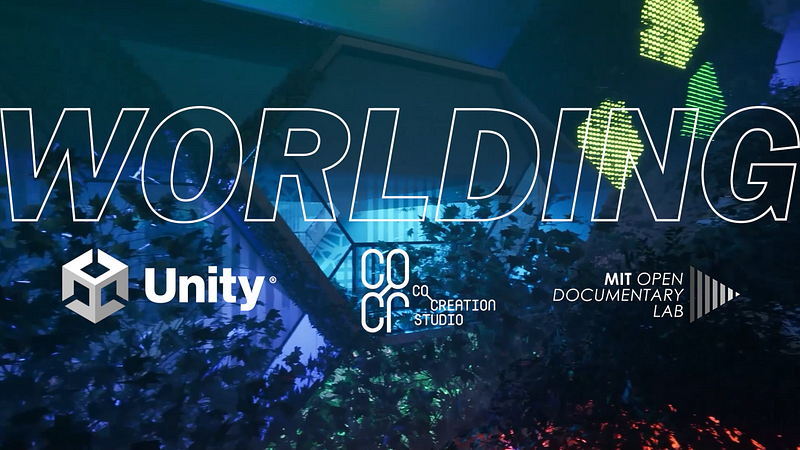
For the organizing team,
“Worlding, in the context of real time digital technology, is a verb that unravels these layers of inscriptions, the assumptions of the way “things are’’ to show they haven’t always been that way, that there are many worlds, and to imagine possible worlds through collective, democratic and artistic processes.”
In its debut edition, the Worlding Workshop 2022 was a week-long intensive knowledge-sharing program from September 27 — October 4, 2022 that incubated five storyworld projects at the intersection of five distinct disciplines: Climate Futures, Land Use Planning, Co-creation, Real Time 3D Game Engines (RT3D) and Documentary Storytelling. It explored how we might use game-engines to imagine and build community-based sustainable worlds and perhaps render them possible in real life through policy change. The stage was set with a keynote by Dawn Danby on Living Infrastructures: Reworlding Urban Environments followed by five Hands-On Workshops and five Lightning Talks on topics ranging from colonialism to digital twinning.
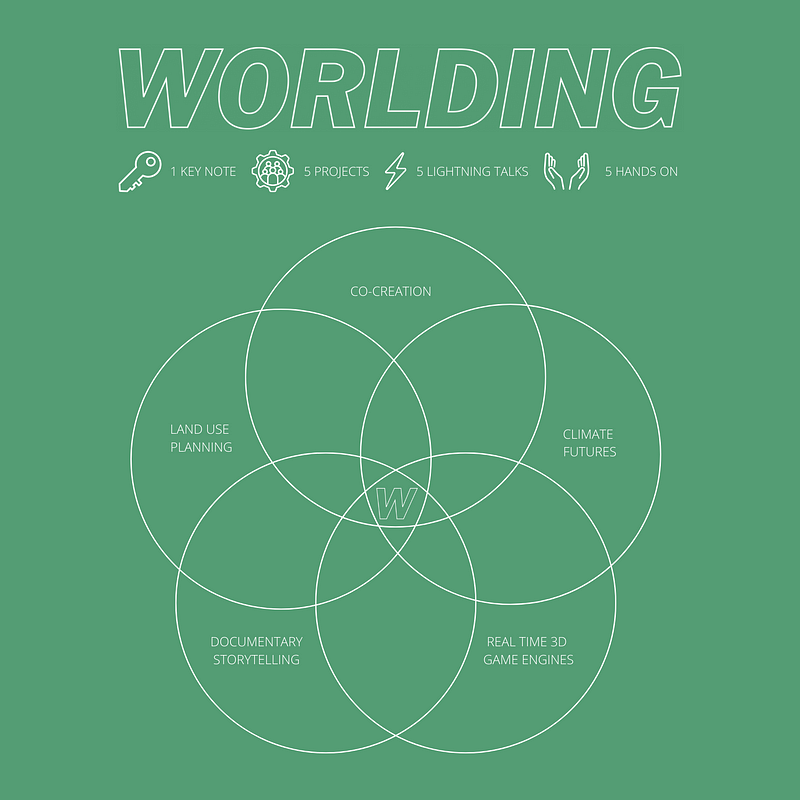 Overview of
Worlding, image courtesy of the writer.
Overview of
Worlding, image courtesy of the writer.The teams consisted of land-use planners, placemakers, climate scientists, documentarians, technologists, worldbuilders, decision-makers, scholars and media-makers. Featured in this article are the five projects, each with distinct storytelling approaches and methodologies yet unified by shared value systems and visions.
The Future Current: Year 2180
The Future Current: Year 2180 (2022) is a RT3D first-person open world game set in a data-driven dystopian future. Interestingly, it was created by a process that consists of forecasting climate crisis trends based on actual data, for example Sao Paulo tribal communities being affected by forest fires and New York preparing for storms, and using them as a foundation to build a speculative world. Speculative worlds need speculative technologies, and in this speculative New York, for example, it is the ability to recapture energy from the storm to repower the city.
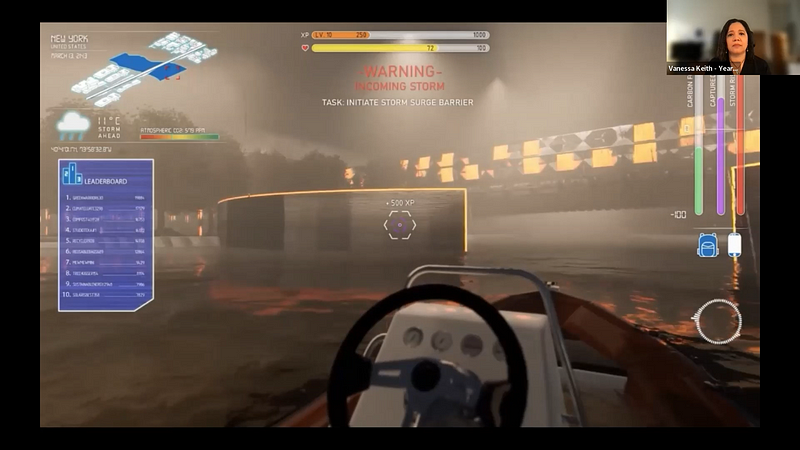
Deploying time tested game mechanics in a refreshing context, the game’s objective is to complete “climate quests’’ via persona pathways that include Explorers (that chase storms and prepare cities for them), Creators (that design solutions to ensure survival) and — my personal favorite — Destroyers (that help recycle the old city). Compared to your average MMORPG in which you hunt animals for resources and points, in this world you gain points by catching poachers in the act.
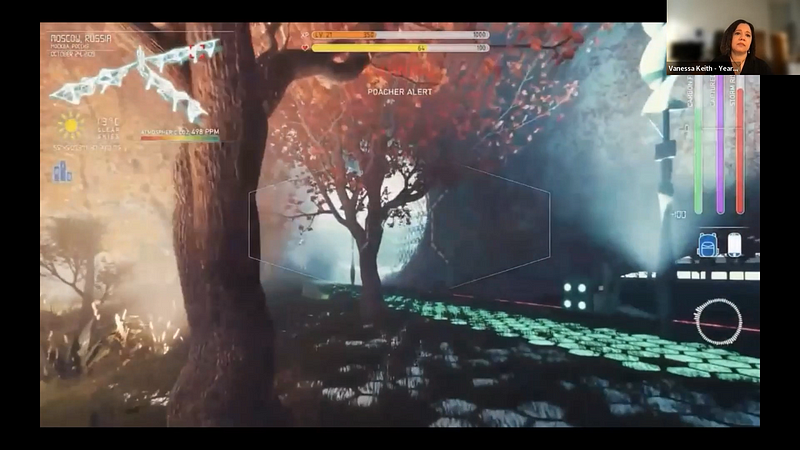
Their work also included imagining the Yawanawa tribal community expanding in Sao Paulo by the year 2180 in a context where forest fires are desertifying the rainforests. Through this methodological process, The Future Current: Year 2180 builds a realistic, fact-driven speculative fictional ground powered by insight.
Wild Natures
Following a different trajectory, Wild Natures (2022) explores the intersections of criminal and environmental justice with young adults on probation in Liverpool, in the UK — a country built off long-standing relationships to colonialism and racial and ethnic “other”-ing. Bringing together a cross-disciplinary team from criminologists to digital media artists, Wild Natures creates an interactive and imaginative space for contemplation, education and political engagement.
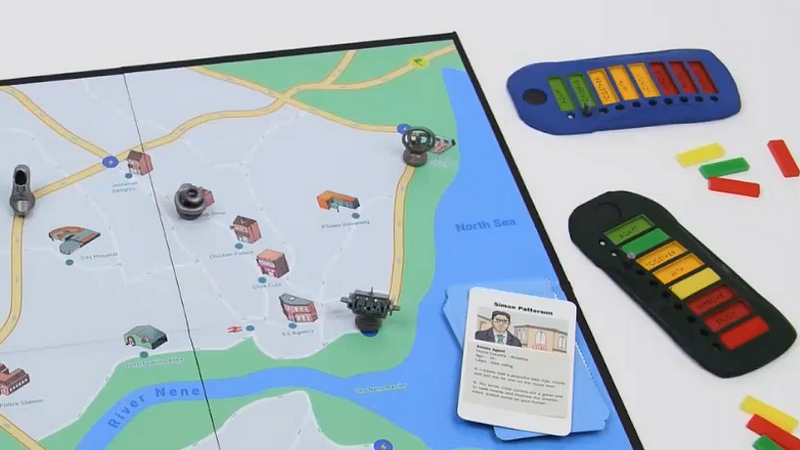
This game started off as PTown Bay (2021): a community co-created analog board game that borrows the visual language of Grand Theft Auto (1997) in a civic engagement context.
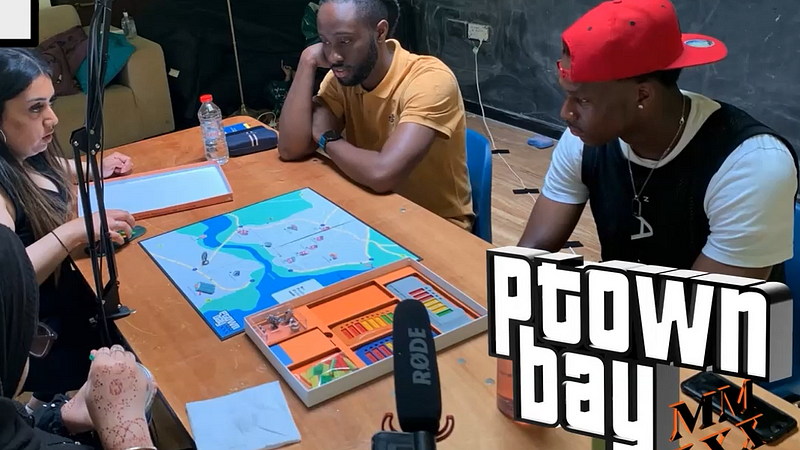
For Wild Natures, the expansion to RT3D is more about using this technology as a tool for workshopping and futurescoping rather than as an outcome itself. Their process questions how RT3D can be used to envision pasts, presents and futures with young people who face multiple disadvantages at the cross section of social and climate justice.
100th Meridian
Stepping out of the city and into the farmlands of Colorado in the American West is the 100th Meridian (2022) — an open world immersive documentary that unpacks the hardship and conflicting interests brought on by the longest running drought in the state.
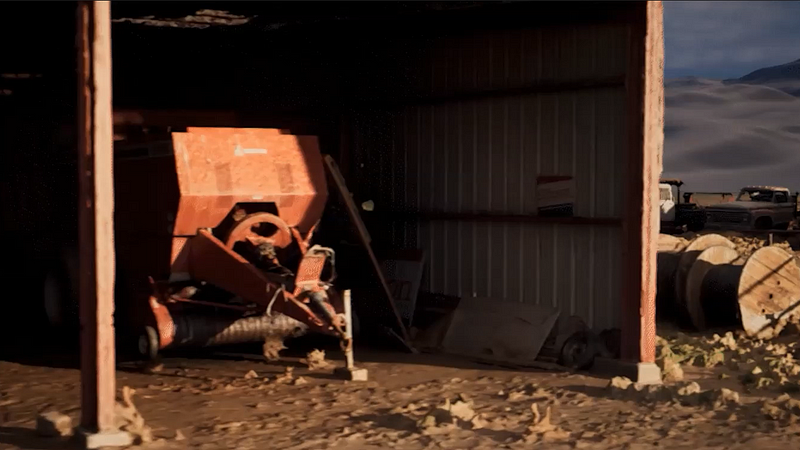
An episodic immersive combining verite footage, scientific data powered simulations and environmental photogrammetry, it shows the plight and courage of these farmers in facing these dwindling sources of water and historical inequities, addressing themes spanning Family Heritage and Loss, to the Collapse of the American Dream, from Unsustainable Agriculture to The Aridification of the West and Inequitable Water Rights.
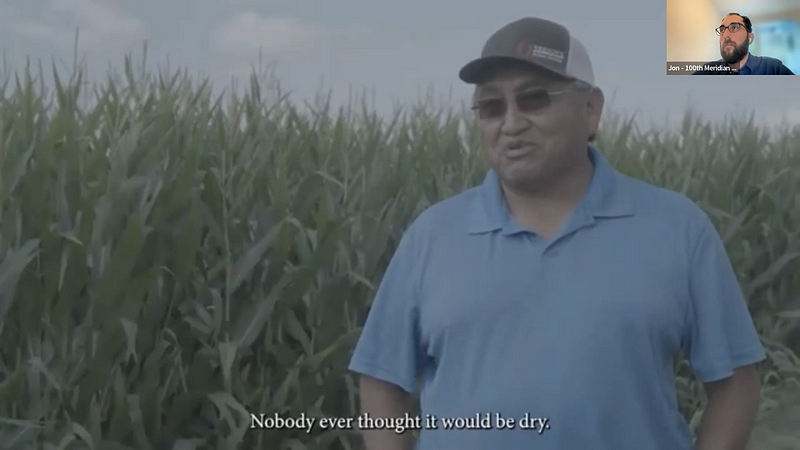
One farmer in particular mentions the Indigenous people, the Anasazis, Hopis and Pueblo who never imagined that the water body could dry out. This struck me as an echo of imagined futures of earlier times.
Seabreeze Bop City
Seabreeze Bop City (2022) is a RT3D storytelling project based in North Carolina that celebrates the rich Black cultural history of SeaBreeze, one of the only resort towns available to the Black community in the 1920–60’s and a region that suffered major destruction from Hurricane Hazel in 1954. Using lidar scans, 360 videos, oral history and an archive of storytelling assets, the project tells a story about land loss and the power of rising waters made frequent by climate change and infrastructural failures.
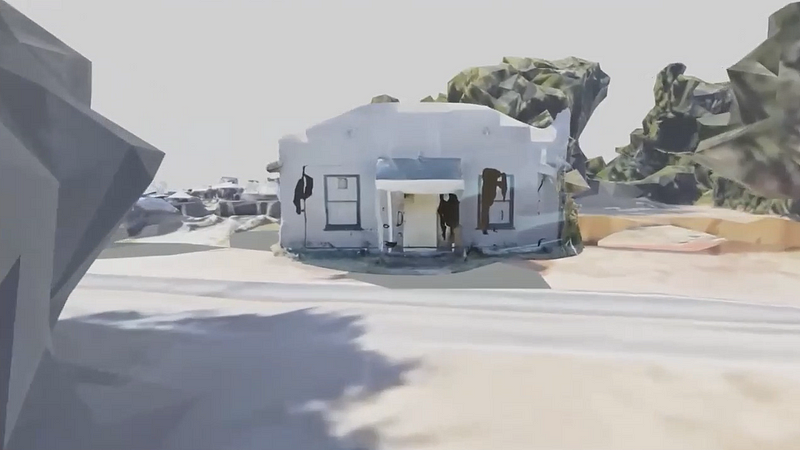
The immersive experience celebrates the vibrant culture of music, dance and intergenerational memory present, working nonlinearly to collapse pasts, presents and futures into a co-created space bursting at the seams with heritage and vision.
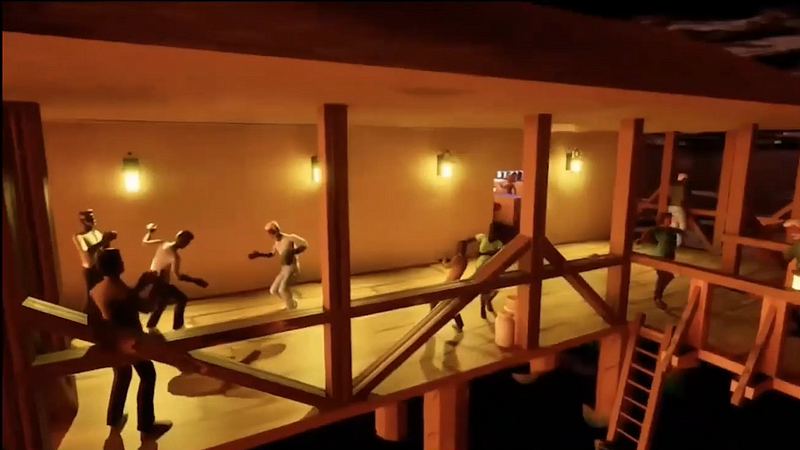
Seabreeze Bop City is an example of using RT3D to call up the past while imagining preferable environmental, water and economic futures. In an area increasingly vulnerable to the relentless rise of the Atlantic Ocean, the project’s creators’ hope is to create a piece of media with the potential to shape policy.
Waves of Buffalo
Last but not the least, Waves of Buffalo (2022) is an extension of a documentary film called Singing Back the Buffalo (2024) that is currently in production.
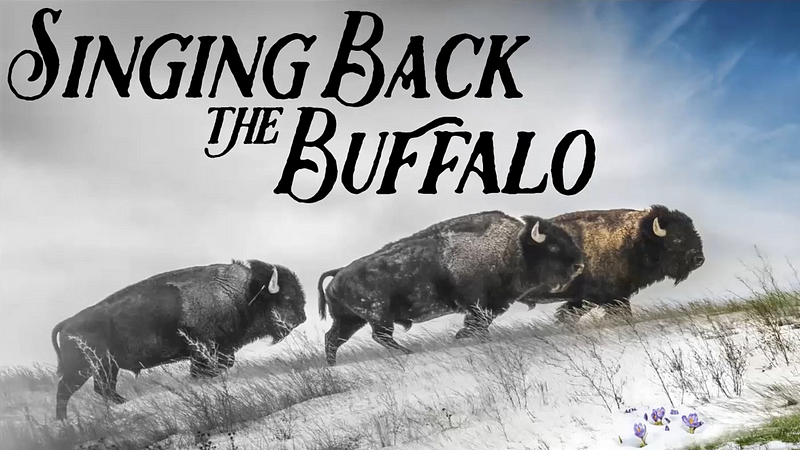
Both attempt to raise awareness around Indigenous efforts to revitalize the populations of North American buffalo, eradicated at the end of the 19th century. Many Indigenous people in North America embrace an ancestral kinship with buffaloes. However more and more people are growing disconnected with this connection with the buffalo, the land and everything they embody. By attempting to recreate the experience of witnessing a herd of buffaloes passing by, Waves of Buffalo stirs what its creators call “buffalo consciousness.” Their core concept is to create a land based, multi-sensory and durational installation that manifests the experience of a buffalo herd passing by.
This quintet of RT3D experiences from North America was also complemented by a spread of projects from around the world. Overall, Worlding 2022 presented new constellations amidst seemingly siloed themes and disciplines. In storytelling, speculative narratives and documentaries seem like different camps. In the face of today’s realities, it is pertinent for the two to come together at a middle ground, reconnect and converse with fields like policy and planning.
“Planners are often the narrators of the climate change story for broad segments of the population. How they define the problem can determine a community’s resilience and adaptive capacity.” says Marina Psaros, head of sustainability at Unity and lead on Worlding at Unity. “Technology can help us visualize and communicate those worlds.”
Worlding is, thus, a love child of this potential — of speculative design, land-use planning, documentary storytelling, RT3Ds and of co-creation. By embracing co-creative, non-linear, participatory and interdisciplinary mindsets, we experience and envision alternative pluriversal worlds that are constantly in coexistence, for as put by Donna Harraway,
“It matters what worlds world worlds.”
Watch out for more Wordling in 2023!
For more news, discourse, and resources on immersive and emerging forms of nonfiction media, sign up for our monthly newsletter.
Immerse is an initiative of the MIT Open DocLab and Dot Connector Studio, and receives funding from Just Films | Ford Foundation, the MacArthur Foundation, and the National Endowment for the Arts. The Gotham Film & Media Institute is our fiscal sponsor. Learn more here. We are committed to exploring and showcasing emerging nonfiction projects that push the boundaries of media and tackle issues of social justice — and rely on friends like you to sustain ourselves and grow. Join us by making a gift today.